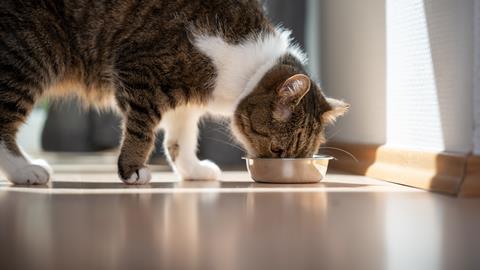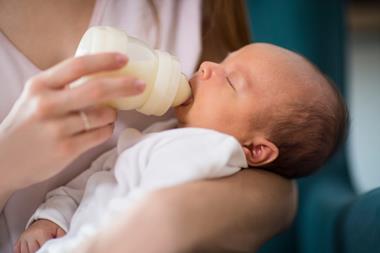For pet owners across the country, Covid-19 isn’t the only pandemic causing concern. In recent months, hundreds of cats in the UK have been struck down by a rare and often fatal disease, which vets and food safety officials fear could be linked to petfood.
According to the Royal Veterinary College, over 500 cats across the UK have been treated for feline pancytopenia, which causes the number of blood cells (red, white and platelets) to decrease rapidly, causing serious illness. Currently, the mortality rate is 63% and vets are reportedly having to use dogs’ blood to keep up with demand for transfusions as the crisis worsens.
It is feared – though not yet confirmed – that the outbreak could be linked to catfood. According to the Pet Food Manufacturers Association, investigations have identified a potential link to dry catfood products from three specific brands: Applaws, Ava and by Sainsbury’s.
A number of products from those brands, which were all manufactured by Fold Hill Foods, were recalled on 15 June as a precautionary measure. “We are alarmed and deeply saddened to learn of reports from the food & veterinary authorities of some health issues in cats,” said Ben Mankertz, general manager for Fold Hill Foods. “As cat owners ourselves, we fully understand how upsetting and stressful this situation is for families and although diet has not been confirmed as the cause, we would prefer to act now to ensure the absolute safety of cats.”
Subsequent testing by the FSA identified mycotoxins in a small number of samples of the recalled catfood tested, although the regulator stressed that “mycotoxins are widely found in some types of feed and food and do not, in themselves, indicate they are the cause of feline pancytopenia.”
The FSA is now working with the business and vets to investigate further – including wider sampling and a broader screening for any possible toxins. In the words of PFMA CEO Michael Bellingham, a “thorough, top to bottom investigation is underway to determine the cause” of the outbreak.
For some cat owners, however, that investigation has come too late. There were 130 cases of feline pancytopenia reported between April 2021 – when cases first started accelerating – and mid-June, when products were recalled. Vets fear the actual number of cases could be much higher.
Had it been humans and not cats falling ill, they claim, there would have been widespread outrage.
It’s important to remember, perhaps, that it is no easy task to establish whether food is the underlying cause of a disease outbreak, let alone when the patient can’t speak for itself. “With acute cases of this nature, it may be some time until we can definitively identify a common cause,” said the FSA, adding that the investigation “remains of an utmost priority”.
What this case has highlighted, though, is that the recall system has its flaws. Lots of cat owners, it seems, were simply not aware the products had been recalled and continued using them, oblivious to the potential risk. It’s something that no doubt happens during recalls of human food, too – though if people start dying the media coverage would be more extensive.
With the consequences of missing a relevant recall notice so serious in some cases, it raises the question of whether it’s time for the alerts system to be reviewed. Now so much shopping is done online and by credit card, could a more targeted warnings system be developed?
What is certain is cat owners won’t be satisfied with an apology, should any link to petfood be confirmed. With many facing not only the loss of their beloved pets but also vets bills running into the thousands, some are already looking into legal action.
Law firm Leigh Day says more than 100 owners have asked its product safety team to investigate a possible claim. They include Sarah Lawrence of West Sussex, whose cat Sterling died within four days of contracting pancytopenia, and who is leading a campaign to raise awareness of the deadly disease. “Nothing can really compensate us for our losses and the emotional distress we are all going through,” she says, “but at the very least we want answers and to make sure it can never happen again.”

View full Profile
























No comments yet